Initiatives
Eco-Innovations
India’s population grew rapidly and the proportion of yielding farm fields belonging to a family started reducing. It became even more difficult to rear a family with the help of reducing areas of farms. It is possible to lead life happily overcoming this troublesome situation by yielding maximum crops in the best possible area we have. Shri Siddhagiri Math, Kaneri, Kolhapur has proven the fact experimentally.
Pyramid Shaped Warehouse
Pyramid Shaped Warehouse
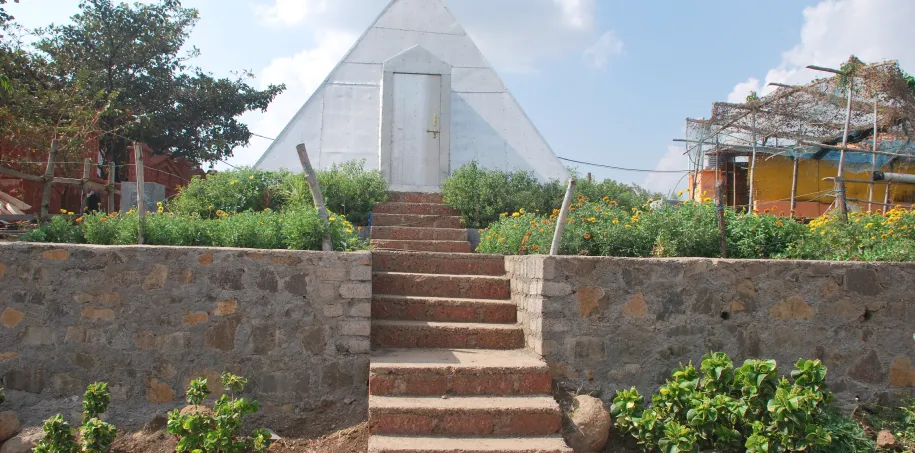
Storage of the farm produce has always been one of the key challenges for any farmer. A 'pyramid shaped' warehouse was designed so that all the perishable and seasonal produce can be stored in a better way and for longer period.
The shape power is the only responsible factor for the preservation effect without any other physical or chemical treatment.
Shelf life of crop yields in pyramid shape structure up to 17 days, whereas shelf life of crop yields in room temperature was 7 days. 10 days were increased compared to crop yields which were kept in room temperature, without any physical and chemical treatment.
Hence the pyramid shape storage system increases the shelf life of crop yields compared with room temperature and it also prevented spoilage. This is low cost, required no electricity and eco-friendly technology is more suitable to store crop yields effectively than room temperature, in rural as well as urban areas. Our aim is to spread an awareness about concept of pyramid which is also used as preservation technique for food commodities.
Construction of pyramid
Dimension in multiple of:
• Base length |
= 47.1cm, |
• Slant height |
= 44.8cm, |
• Height |
= 30cm |
Agnihotra

Purify the atmosphere with Agnihotra
How to use:
To be performed daily at sunrise and sunset at farms, inside home, etc.
Samagri:
purpose
Agnihotra is a healing fire produced by burning Indian cow dung, ghee and some raw rice pieces.
Scientifically, it is proved that this fire heals the surroundings. It is a process of purifying the atmosphere through a specially prepared fire performed at sunrise and sunset daily. It is the ancient science of Ayurveda. Non-fertile land, if exposed to Agni-hotra daily, starts yielding after a year or so. Children who are mentally retarded starts grasping things quickly due to performing Agnihotra daily. Agnihotra reduces stress, leads to greater clarity of thought, improves overall health, gives one increased energy, and makes the mind more full of love. It is a great help to drug and alcohol de-addiction. Agnihotra also nourishes plant life and neutralizes harmful radiation and pathogenic bacteria. It harmonizes the functioning of Prana (life energy) and can be used to purify water resources.
Plastic Lake
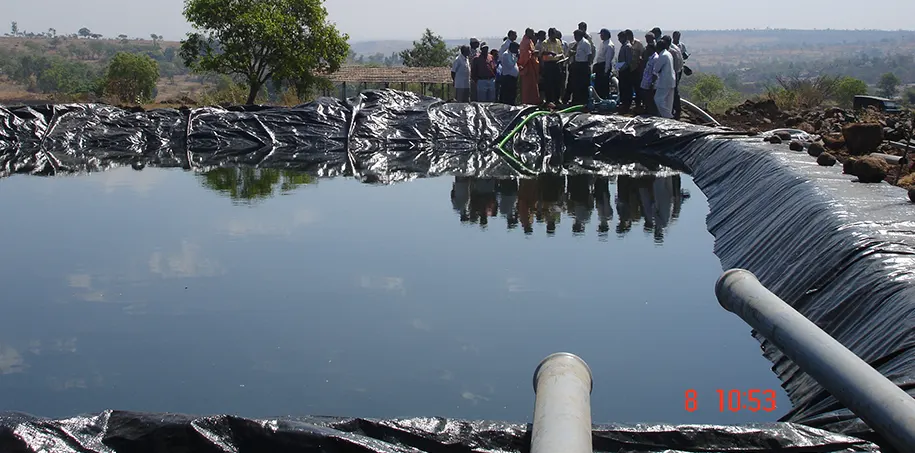
Plastic film coating is the best a short-term method that allows farmers to store enough water for one crop. Since it doesn't help raise the water table, the high cost involved is hardly viable. Rainwater is conserved in this lake and used for crops. Using siphon method water is irrigated to the farm. Due to draught situations in Kolhapur, Shri Swamiji implemented this Plastic Lake in the farm fields, and it is able to conserve 1000 liters of water and supply it to the farm area.
Vermicompost
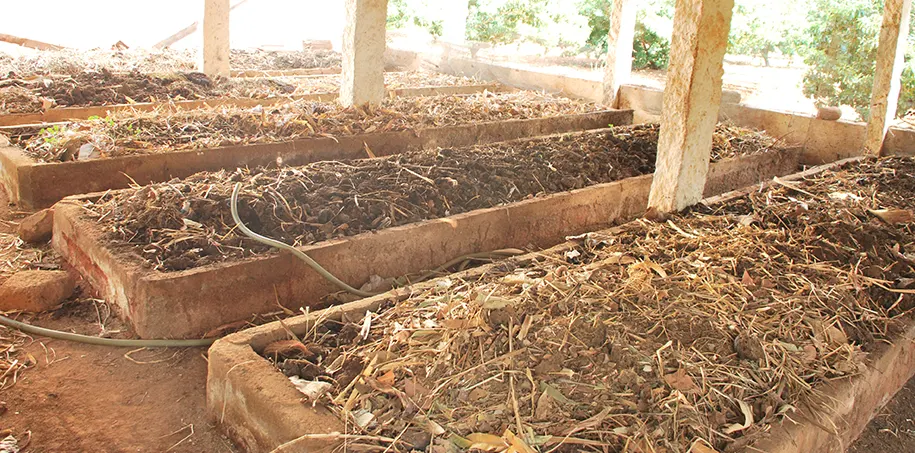
Vermicomposting is a procedure of yielding rich in nutrient compost with the use of earthworms. It is one of the easiest methods to recycle agricultural wastes and to produce quality compost. Earthworms consume biomass and excrete it in digested form called worm casts. To avoid the usage of chemical fertilizers, Shri Swamiji insisted the usage of this compost. Team brought Eisenia Foetida (Red earthworm). This arthworm has high multiplication rate.
Siddhagiri team has adopted both Pit method and bed method to prepare the compost. The sheds were prepared to create moist and shady site. Compost is yielded in 45-60 days period. When a black mass surface, is appeared then slowly the compost is collected superficially without tampering with earthworms. This entire compost is utilized for organic farming performed at Siddhagiri Math in association with Krishi Vigyan Kendra, Kolhapur – an organic training institute of central government.
Automated Jaggery Production
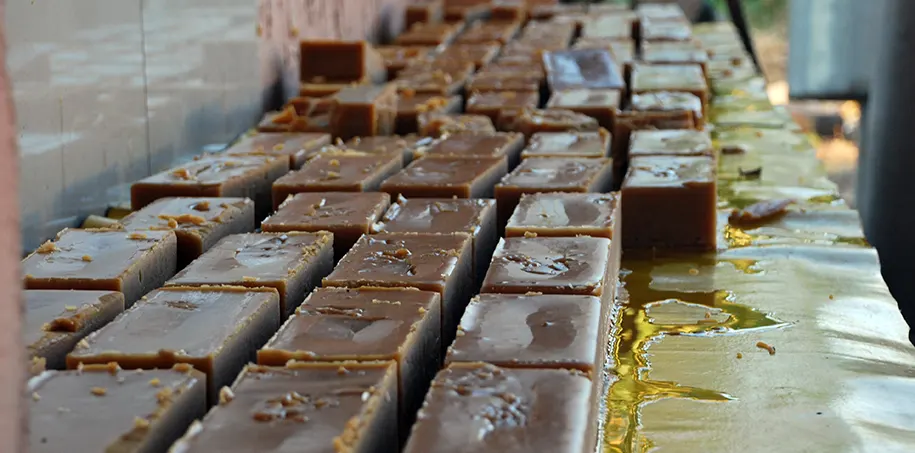
There is an urgent need that health-conscious Indians should say NO to sugar. Sugar consumption has been the cause of major health issues like obesity and diabetes. Understanding the bitter truth of sugar intake, Swamiji laid thrust on the production of organic jaggery. New techniques of removing impurities from jaggery were devised and it led to the production of sumptuous and healthy organic jaggery. In association with KVK Siddhagiri Kolahpur, Automated Jaggery processing unit is established in Siddhagiri Goshala premises. The baggas used is reduced in quantity has lowered the manufacturing cost.
As the production got improved on the parameters of quality and quantity, the need to establish a valid platform of marketing was realized. It led to the establishment of a marketing chain which promised minimum support price to the farmers, thus lowering the risk of loss.
Silage

Silage is the fodder which is conserved by reducing pH through natural anaerobic fermentation and is used for feeding cattle during scarcity period, drought or floods and for Utilizing surplus forage. The suitable crops are sorghum, maize and oat etc. During lean period feeding of silage acts as a green fodder and maintains livestock productivity.
By the end of rain, corn crop yield was purchased at Rs. 2000/- per ton from farmers around. This crop was shredded by machine and stored in a bunker. Salt, buttermilk and jaggery water is sprinkled over the chopped fodder. It requires 3-4 months to prepare the silage. Every cattle is fed with 20 kg of silage, 5 kg of dry hay and 10-15 liter of water during scarcity period. Around 2000 tons of silage is prepared. It costs 4 Rs. Per kg when prepared at Siddhagiri Goshala. This silage has increased the milk quantum from 3 liter to 4 liter per cow.
Green House
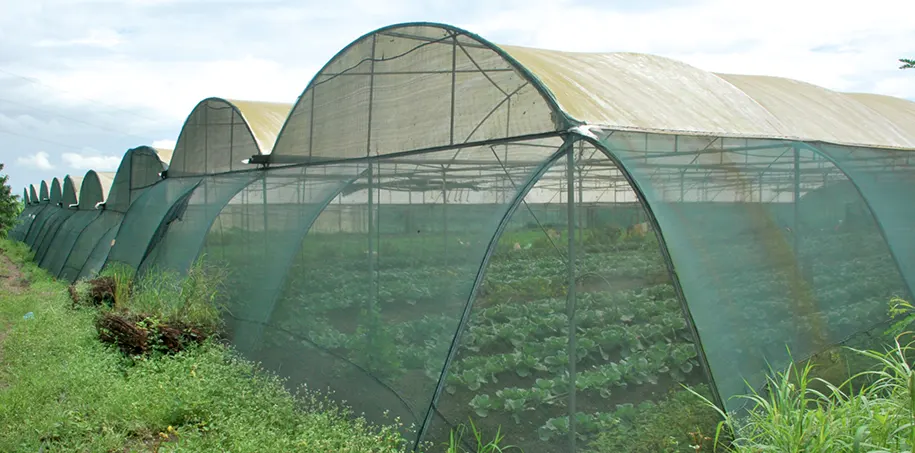
Greenhouse farming is the process of growing crops and vegetables in a green shed-net . Green shed net allows farmers to increase their performance and yields, while improving the quality of products. Greenhouse farming protects crops from external threats such as certain pests and extreme weather events. it frees crops from being slaves to the natural cycles of the seasons.
Siddhagiri team yields organic vegetables from the greenhouses. It helped farmers to cultivate a variety of crops with better control over the production and quality. Veggies from Green house are used for the consumption of Siddhagiri math families.
Drip Irrigation
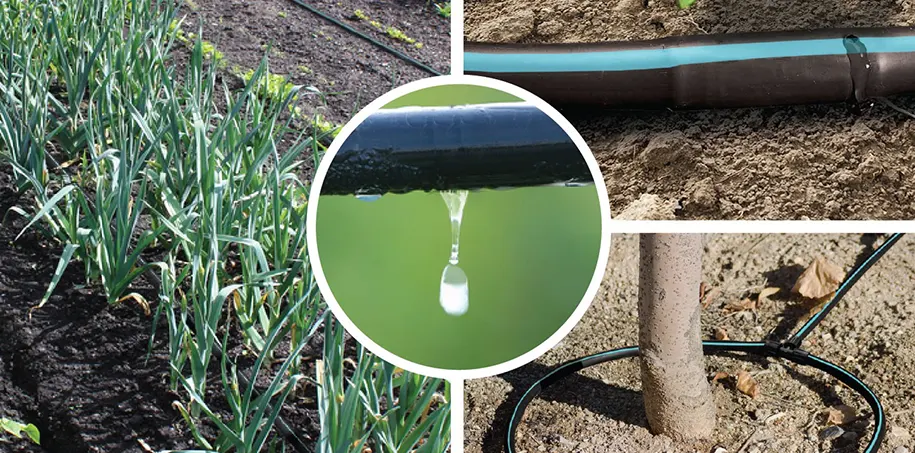
Drip irrigation is a type of micro-irrigation system that has the potential to save water and nutrients by allowing water to drip slowly to the roots of plants, either from above the soil surface or buried below the surface. As compared to canal and sprinkler irrigation, drip irrigation theoretically saves 40% to 50% water. Scarcity of water compelled Siddhagiri team to implement drip irrigation to plants like Mango, sugarcane, etc. Sugarcane is the most water consuming plant. Drip irrigation for sugarcane has saved million liters water for Siddhagiri.



